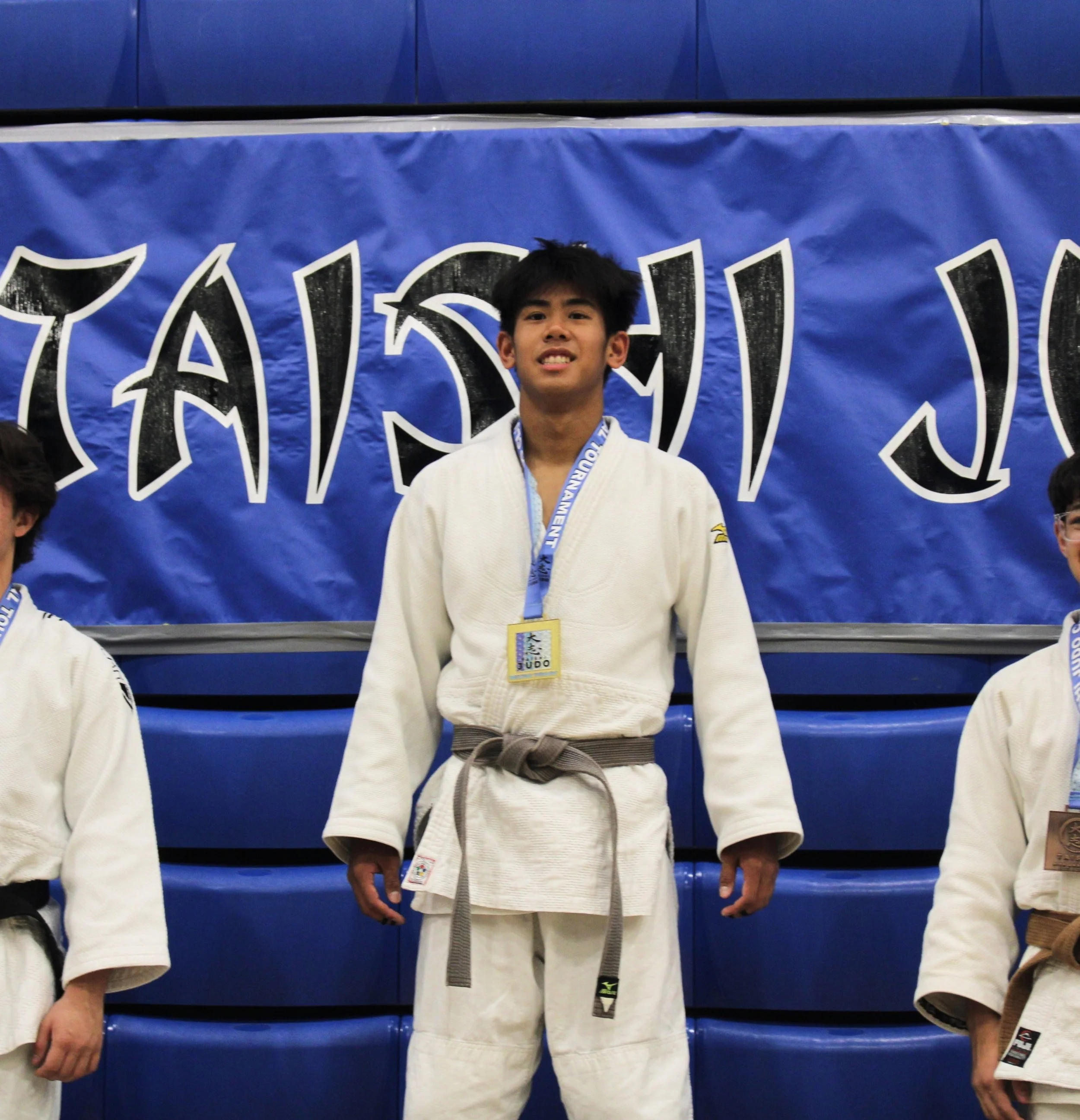Our History
Sensei and Professor Tuan Cai, also known as Tom Cai, holds black belts in both Judo and Brazilian Jiu-Jitsu. He earned his Brazilian Jiu-Jitsu black belt under Professor Jaime Canuto and initially trained in Judo with his two sons, dedicating himself to achieving his Shodan (black belt) in the discipline. Following this, Sensei Cai undertook a decade-long journey in Brazilian Jiu-Jitsu, ultimately earning his second black belt.
Now a "Double Black-Belt," Sensei Cai, who values the principles of humility and kindness reflected in his children, is dedicated to sharing his expertise and discipline with a broader audience. This commitment inspired the founding of Cai Jiu-Jitsu Academy, where they offer training in both traditional Kosen Judo and Brazilian Jiu-Jitsu with heavy emphasis on ground fighting, “ne-waza” and proudly upholding the GFTeam ethos.
Professor Jaime Canuto, a multiple-time IBJJF World Champion, confers the rank of BJJ Black Belt upon Sensei Tuan Cai.
Our Mission
Our goal is to advocate for community sports and competition through the instruction of traditional Brazilian Jiu-Jitsu and Kosen Judo, with more emphasis on ground work, two disciplines that complement each other and cultivate a holistic martial artist and a well rounded MMA practitioner, thoroughly equipped for self-defense. Our Academy promotes community bonding through in-house Kosen Judo tournament events as well as participation in local community competitions for Brazilian Jiu-jitsu.
Brazilian Jiu-Jitsu (BJJ) is not just a martial art but also a way of life for many practitioners. Its ethos encompasses several key principles and values which includes respect, humility, discipline, persistence and patience, adaptability, community and camaraderie, self-defense and problem-solving, health and well-being. These ethos elements combine to create a rich tapestry of values that extend beyond the mat into each practitioners’ daily lives, influencing how they approach challenges, interact with others, and strive for personal growth. They are universally applicable, transcending age, size, and background, making them accessible to all.
Brandon, Sensei Tuan's eldest son, has been practicing Judo since the age of 7, training under the guidance of his father, Tuan Cai. A lifelong student of the art, he has developed a deep passion for both competition and teaching. Brandon is proud to be on the USA Judo national roster, currently ranked 13th in the country. With continued dedication and hard work, he hopes to represent the United States and compete internationally in the near future - sharing his love of Judo on the world stage while inspiring the next generation of judoka here at home.


